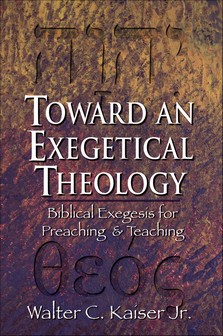 Chris Tilling shared a while ago some books he got for review. One that I took interest in and would like to read is Seyoon Kim’s recent work: Christ and Caesar: The Gospel and the Roman Empire in the Writings of Paul and Luke (Eerdmans, 2008).
Chris Tilling shared a while ago some books he got for review. One that I took interest in and would like to read is Seyoon Kim’s recent work: Christ and Caesar: The Gospel and the Roman Empire in the Writings of Paul and Luke (Eerdmans, 2008).
I’ve read one other book by Seyoon Kim and it was really good, though pretty heavy in its academic approach – it’s not light reading. It is Paul and the New Perspective: Second thoughts on the origin of Paul’s Gospel (Eerdmans, 2001). In this work Kim dialogues with James Dunn on issues related the New Perspective on Paul and just how and when did Paul formulate his gospel. For the NPP folks and others, they see a progression in the development of Paul’s gospel from his Damascus conversion to his writing of Romans (one of his last letters). Kim argues otherwise and asserts Paul got his gospel message nearly instantly (and completely) at the moment of his Damascus Road conversion.
Now, in this book, Kim takes on everyone’s beloved Bishop of Durham, N. T. Wright. Wright leads the way in arguing that much of Paul’s writings are anti-imperialistic in their tones. Kim takes on Wright and his NPP cohorts and challenges the notions that Paul is as strongly anti-imperialistic as Wright makes him out to be.
I know Gordon Fee takes a similar position as Wright – he spoke at a Chi-Alpha Retreat once right after his work on Philippians and talked some about Paul’s use of κυριος (Lord) and how it was menat to be in contrast to the Roman usage of καισαρ (Caesar)and also that the Caesars, with their self-imposed diety status (the Imperial Cult and Ideology), insisted the people refer to them as “Lord.” Thus, the implication that any claim that “Jesus is Lord” (over and against the Caesars) is anti-imperialistic. The wonder was, how could a crucified messiah figure be Lord over and against the young robust Caesars of the Roman Empire?
Here are Chris’ thoughts:
Kim argues, against Wright, Crossan and co, that an anti-imperial interpretation is actually unlikely. I look forward to reading this exciting contribution and having my own views challenged. It simply makes sense to me that some of Paul’s important language would have naturally struck cords in people’s minds concerning the empire, and that this was no accident on Paul’s part. Kim may just change my mind on how, or even whether, I see this happening. Of course, he may not and I am not altogether convinced of the rather mathematical approach he takes to the Damascus Road experience and Paul’s theology, but Kim is a scholar of considerable standing so I expect to be challenged and to learn a lot reading this new book.
Here is the product description from the Eerdmans site:
The slogan “Paul and the Empire” is much in vogue in New Testament scholarship today. But did Paul truly formulate his gospel in antithesis to the Roman imperial cult and ideology and seek to subvert the Empire? In Christ and Caesar Seyoon Kim first examines five epistles of Paul exegetically and shows how the dominant anti-imperial interpretation is actually difficult to sustain.
Next, he examines the Lukan writings (Luke-Acts) to see how Luke talks about the encounters of Paul and other gospel preachers with Roman imperialism. Kim explores why it is that Luke makes no effort to present Christ’s redemption as materialized in terms of political liberation. Finally, Kim compares the exaltation Christologies of Luke, Revelation, Paul, and Hebrews and inquires about the hermeneutical possibility of developing a political Christology in our present-day context.
This sounds like some pretty heavy stuff! In my opinion, more folks need to pay attention to Kim’s work on Paul.




